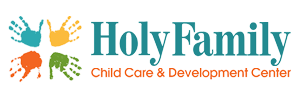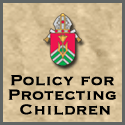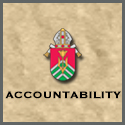HFCC&DC participates in the Child & Adult Care Food Program (hereinafter “CACFP”) administered by the West Virginia Department of Education. This program mandates that HFCC&DC follow meal requirements established by the United States Department of Agriculture (“USDA”). Breakfast shall include milk, a fruit or vegetable and grains or bread. A meat or meat alternative can be served in place of a grain for breakfast only three times in a week. Lunch shall include milk; meat or meat alternate; grains or bread; and two (2) different servings of vegetables or a vegetable and fruit. Snack shall include at least two (2) of the following five (5) groups: milk; meat or meat alternate; grains or bread; fruit; and vegetable.
HFCC&DC will only serve items listed on its monthly menu except that it will follow written direction provided by the parent or a licensed health care provider about a child’s special dietary needs, including special needs because of a medical condition or allergy. HFCC&DC will ask parents to provide a special dietary need plan from the licensed health care practioner stating any foods to be avoided, any foods to be substituted, and any need for special utensils. HFCC&DC shall ensure that no more than four hours elapse between meals and snacks, unless a child is asleep. HFCC&DC staff members will encourage a child to eat the food served, but will not coerce or force feed a child.
All meals and snacks will be served in a setting that encourages socialization, where the children and staff members are seated when eating. Staff members will provide supervision and model positive eating behaviors and social interactions.
A monthly menu for breakfast, lunch and snack can be found on the center’s website. A printed copy of the menu will be provided upon request. A copy of the monthly menu is posted in the foyer. HFCC&DC will follow written menus as planned and write any changes on the posted menu in the foyer. To assure each child receives healthy, freshly-prepared nutritionally balanced meals; our center does not allow foods to be brought from home.
An exception to the guidelines of this food program is the WV Pre-K program. Children enrolled in this collaborative program through Ohio County Schools are considered enrolled in public education by the West Virginia Department of Education. Because a child is enrolled the county public education system, the parent/guardian cannot be forced to pay a meal bill by that system. Therefore, these WV Pre-K students have the option to bring their breakfast and lunch from home. In order to bring meals from home, parents/guardians are asked to practice healthy, nutritional guidelines that support positive growth and brain development for young children.
HFCC&DC will feed children twelve months of age and under according to a plan developed in consultation with the parent/guardian and may include advice from the child’s licensed health care provider. HFCC&DC shall offer solid foods to infants four months of age and younger only upon the recommendation of the parent and/or licensed health care provider.
When a child is being breast fed, HFCC&DC will ensure that the child’s plan makes a provision for the mother to provide sufficient portions of breast milk or an alternative to satisfy the child throughout the day. HFCC&DC will not give commercial formula to the child receiving breast milk without written permission from the mother. Until a child is able to hold a bottle securely, HFCC&DC staff members will hold the child while bottle feeding. When a child is no longer being held for feeding, HFCC&DC staff shall ensure that seating is age-appropriate and shall not prop bottles or allow the child to carry a bottle while moving about or walking.
HFCC&DC will store perishable food, formula and expressed breast milk in the refrigerator. Parents/guardians are required to clearly label each bottle of formula with the child’s name, contents and the date received. Parents/guardians are required to clearly label each bottle of breast milk with the child’s name, date expressed, date frozen if applicable, and date received. All bottles of formula or breast milk will have caps on them during storage. Parents/guardians are required to provide these caps and label them with the child’s name. Staff members will wash their hands with soap and warm running water for at least twenty seconds prior to preparing a bottle. All frozen breast milk will be thawed in the refrigerator or under cold running water and will not be refrozen. Staff members will not use a microwave oven to warm a bottle of formula or breast milk and will not give any formula or breast milk to a child that is not labeled. Any unused breast milk will be discarded after each feeding. HFCC&DC will not accept previously opened baby food containers.
HFCC&DC will ensure that drinking water is available to children and staff members and is freely accessible at all times to a child thirteen months of age and over. HFCC&DC will ensure that a single service drinking cup is discarded after one use and/or that a non-disposable cup or glass is washed and sanitized after each use, except that glasses may be refilled with water for second servings during breakfast, lunch or snack.
We will assume that all children will attend five days each week. If your child’s schedule will not be five days each week, we ask that you call the center with your schedule changes by 8:00 a.m. We will adjust the meal orders according to your reporting your child off. Your cooperation with this policy will assure that we have that correct amount of food for all of the children and help keep our operational costs reasonable.
In accordance with Federal civil rights law and U.S. Department of Agriculture (USDA) civil rights regulations and policies, the USDA, its Agencies, offices, and employees, and institutions participating in or administering USDA programs are prohibited from discriminating based on race, color, national origin, sex, disability, age, or reprisal or retaliation for prior civil rights activity in any program or activity conducted or funded by USDA.
Persons with disabilities who require alternative means of communication for program information (e.g. Braille, large print, audiotape, American Sign Language, etc.), should contact the Agency (State or local) where they applied for benefits. Individuals who are deaf, hard of hearing or have speech disabilities may contact USDA through the Federal Relay Service at (800) 877-8339. Additionally, program information may be made available in languages other than English.
To file a program complaint of discrimination, complete the USDA Program Discrimination Complaint Form, (AD-3027) found online at:
http://www.ascr.usda.gov/complaint_filing_cust.html, and at any USDA office, or write a letter addressed to USDA and provide in the letter all of the information requested in the form. To request a copy of the complaint form, call (866) 632-9992. Submit your completed form or letter to USDA by:
- MAIL: U.S. Department of Agriculture
Office of the Assistant Secretary for Civil Rights
1400 Independence Avenue, SW
Washington, D.C. 20250-9410; - FAX: (202) 690-7442; or
- EMAIL: program.intake@usda.gov.
This institution is an equal opportunity provider.
FOODS BROUGHT FROM HOME
We request that you do not bring food from home into our center unless your child is enrolled in the WV PreK classrooms for meals (see prior section).
If wanting to bring food items in for a special occasion, it is permitted under the following conditions:
- Perishable food to be shared with other children must be made in a commercially licensed facility and in its original package, with an ingredient label attached.
- Special dietary needs must be met for the classroom (see office to check if there is a special dietary need).
- Foods must be labeled with the child’s name and date.
- Leftover food will be discarded.
FOOD PREPARED AT THE CENTER
Food prepared at the center will be properly planned, prepared and portioned according to the Child and Adult Care Food Program and the regulatory agency requirements for food service.
FOOD ALLERGIES
If your child has a food allergy, you must notify us in the office and a Special Dietary Need form must be completed before we can make appropriate substitutions. The form must list the food allergen and the appropriate food substitution and must be updated annually by the licensed health care provider.
Food allergies can be life threatening and each child with a food allergy should have an action plan for emergency care completed the by the child’s licensed physician. Please see the office for the appropriate forms needed.









